10 Things to Do in Valencia (With Las Fallas Festival Events and Restaurant Tips)

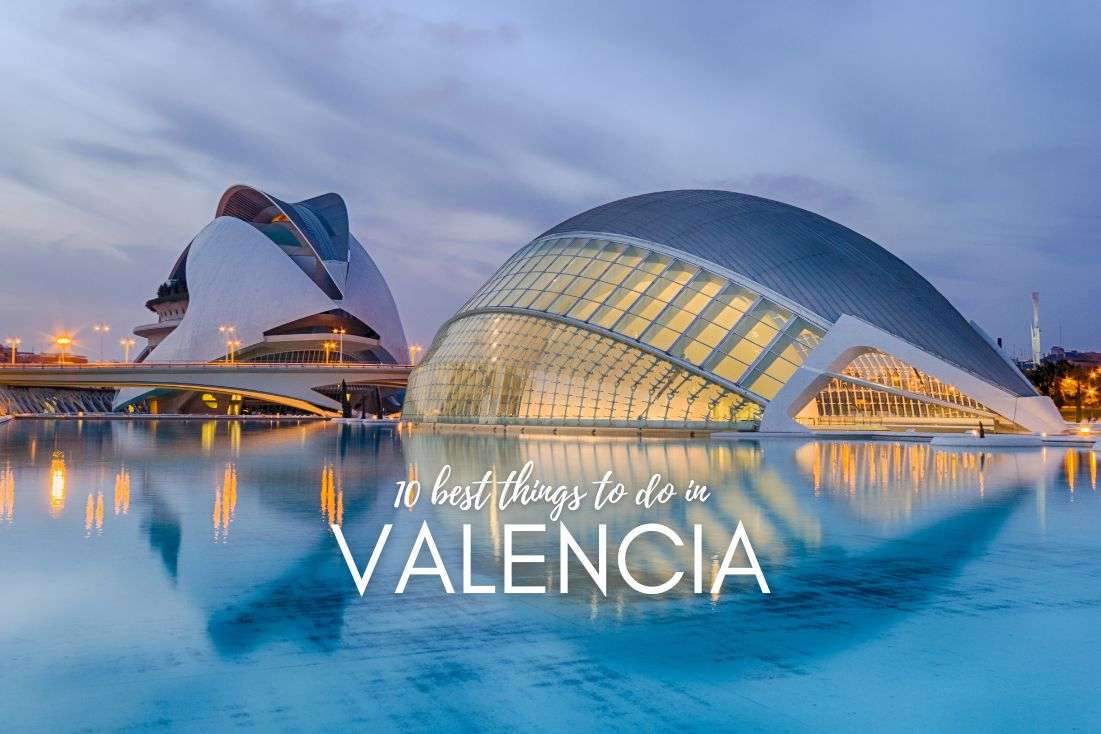
Valencia can bore you to death if you come any time of the year except for the Las Fallas Festival in March. But if you do come for Las Fallas, be prepared for a colorful, cartoony, fireworky spectacle! And some possible hearing loss.
Read on for the top events of the Las Fallas festival to look out for, plus some other sights of the city to fill in your itinerary. This is because I assume you might not want to only look at funny statues and fireworks while in Valencia.
Also, did you know paella originates here? We’ve sprinkled a few restaurant tips throughout the article. Find out where we had the best paella and where to definitely avoid.
Tip: If you are a foodie or traveling around Spain, also read up on typically Spanish tapas.
You might also be interested in reading:
- Andalusia Itinerary: Southern Spain in 10 Days
- Barcelona Itinerary: 5 days in Gaudí’s Metropole (with day trips)
- All You Need to Know about Spanish Tapas (+Restaurant Tips)
- The 10 Best Museums in Spain’s Top Cities
- The 16 Most Beautiful Beaches in Spain
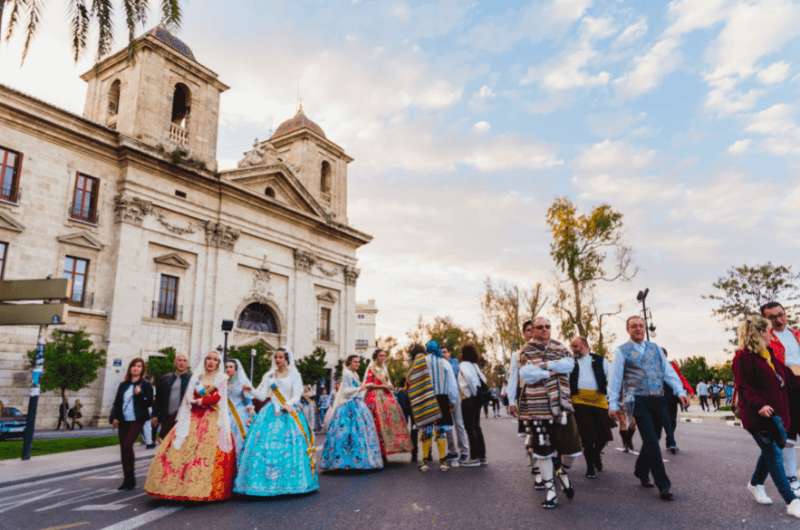
Walking to the flower ceremony by the cathedral
Is Valencia worth visiting?
Compared to the most popular places destinations in Spain, Valencia lacks the charm and dreaminess. It is much more practical, though by no means ugly. There’s just always another Spanish city that will be more enticing than Valencia.
I thought the same of Malaga in Andalusia, though I would visit Malaga over Valencia any day. Malaga at least has killer restaurants, a palace overlooking the city, and last but not least, you will very likely land at the international airport there if you are headed to Andalusia. So it’s an easy stop.
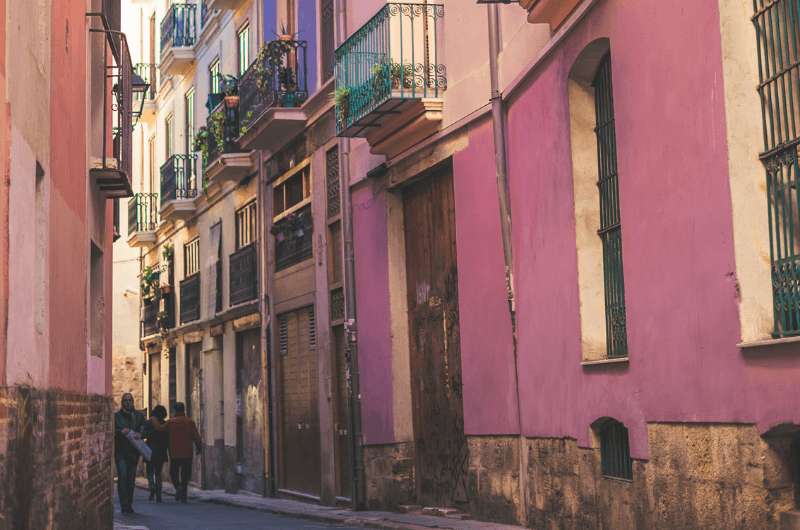
Valencia is great
Valencia on the other hand, though it has an international airport, is not where you’ll fly into, so unless you want to drive the 3.5 hours from Madrid or Barcelona, you won’t just happen to be there. You also probably won’t make a day trip out of it. (You can book your hotel here.)
You might’ve read that Valencia is full of expats and think that there must be a good reason for that. There is—they are here because it is cheap and has all the amenities for a comfortable life. And it is on the coast and the sun shines way more often than not. But that alone doesn’t make it a great place for a vacation.
Enter Las Fallas, Valencia’s pride and glory, and arguably the only reason to make an effort to visit the city. If you happen to be there outside of the festival, you can still at least visit one of the two museums that house the figures that are saved from the fire at the end of the festival each year.
But there are more places to see than just the festival, even though I wouldn’t travel to Valencia specially just to see them. But if you are already in town, either for the festival or otherwise, wander around and check out these:
1. Burning the fallas
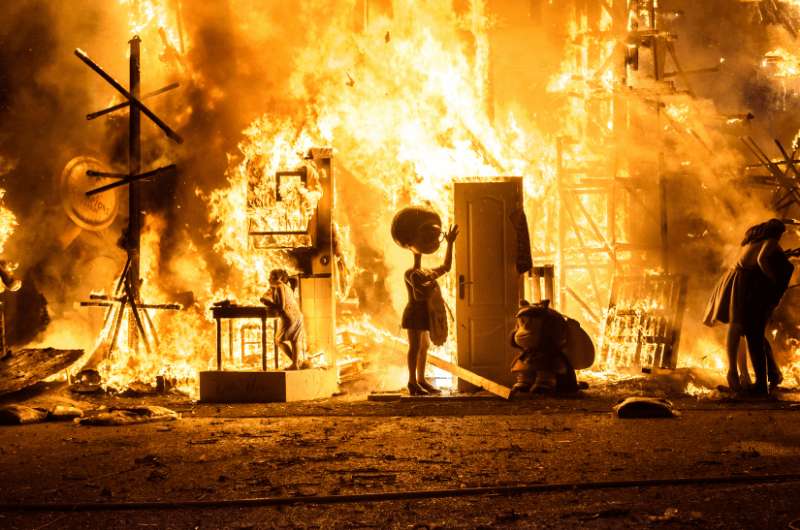
Buring down the fallas can be a bit creepy
Let's start with March 19th, the day of St. Joseph, when the Las Fallas Festival goes up in flames and all of the fallas (except for the winner) are burned down in an unbelievable, smoky finale.
The fires burning in the night all over the place make for an apocalypse that is really enticing. It’s also all a little weird, seeing the characters come to their demise in flames.
It all starts with a fire parade at Calle de Colon at 7 pm. Expect music, traditional costumes and yes, pyrotechnics.
The smaller fallas start burning at 10 pm, the big ones at midnight, and the central one at Plaça de l’Ajuntament goes down last, at 1:30 am.
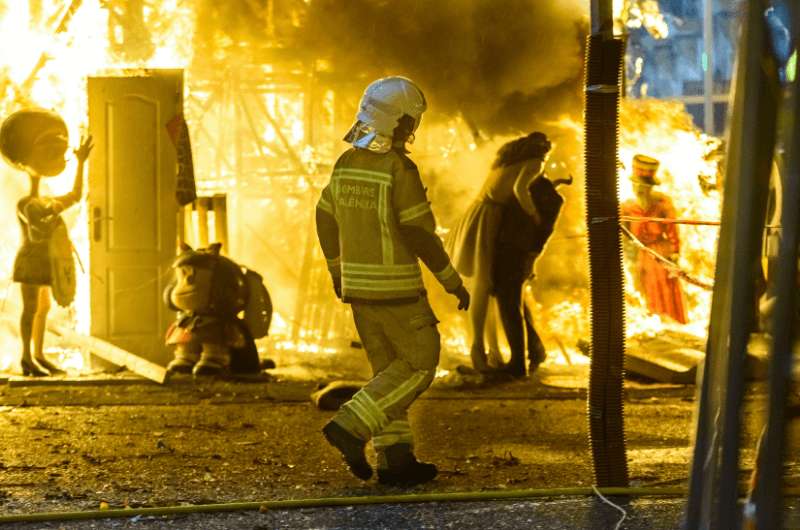
Ready for action
And just like that, the festival is over.
The festival makes Valencia a very fun place to be, full of energy and with a special atmosphere. And most definitely worth a visit.
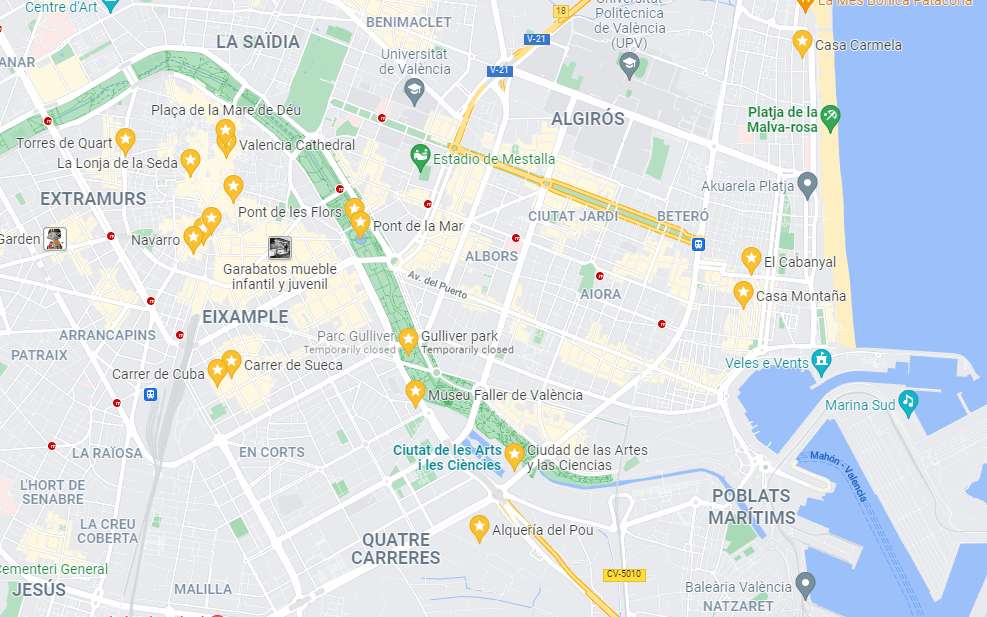
Map of Valencia’s top places to see and restaurants mentioned in this post
2. The flower offering
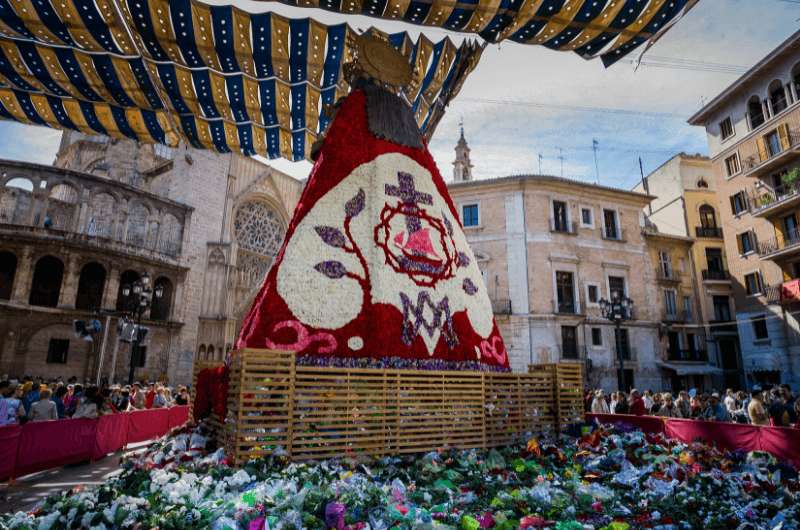
The Lady’s cloak gets covered with flowers following the parades of Las Fallas
A much more somber event to witness is the traditional flower offering. It isn’t quiet, since there are bands playing the whole time, but you finally feel like Las Fallas is also a cultural event. During La Ofrenda, participants wearing traditional dress walk with flowers in hand to the square in front of the Valencia Cathedral to make offerings to the Virgen de los Desamparados (Our Lady of the Forsaken). She is constructed out of wood and by the end of the parades, she will be covered in the red and white flowers.
The main streets where you can catch the parade are Calle de la Paz and Calle San Vicente. The parades last all afternoon on March 17th and 18th from about 3:30 pm to 9:30 pm.
3. Fireworks and Firecrackers
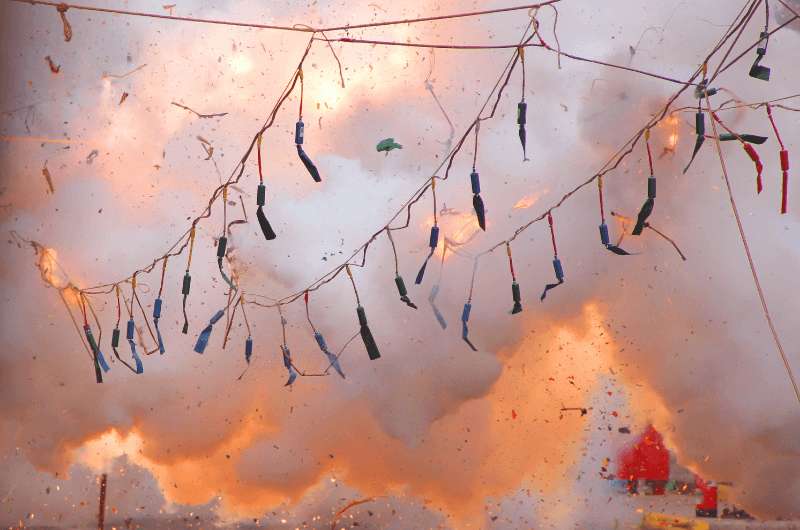
The firecrackers make you deaf and blind
I have to stress that Las Fallas is constant noise and people all over the place. But in a good way. But also in a crazy way. Starting with marching bands walking through the neighborhoods at 8 am every morning and ending with fireworks each night after midnight, your senses will not rest much.
From the beginning of March, there is a firecracker and fireworks display called La Mascleta at Plaça de l’Ajuntament every day at 2 pm. Watch out because these aren’t your childhood firecrackers. Think explosions. Seriously, if anyone in the city center owns a pet, it is a nervous wreck that will probably die a couple years earlier than your standard pup or kitty.
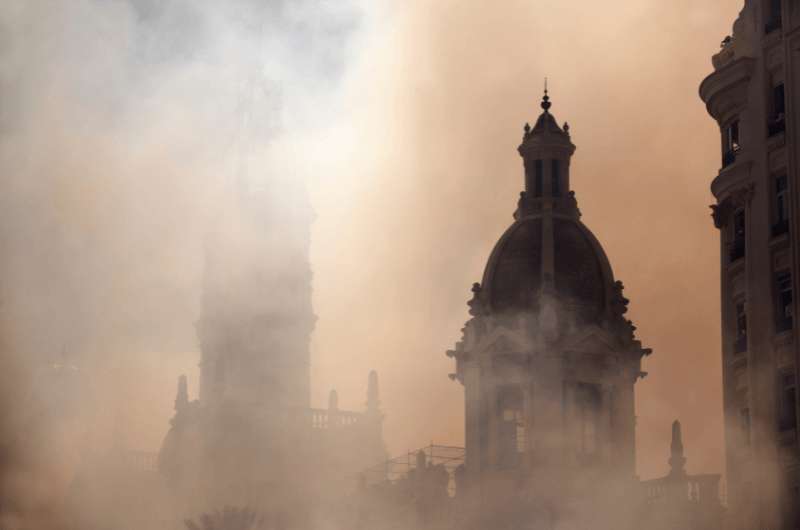
Valencia? Is that you?
The city website even recommends to keep your mouth open a little to prevent your ears from being damaged during la Mescleta! Did you know that noise over 120 decibels can cause immediate harm to your ears? Google it. You can test if it’s true at Las Fallas. I’m not even kidding, the noise gets to 120 decibels. Every day for 18 days straight.
Every night during the festival, around 12 am or 1 am (check the schedule beforehand, times are different on every night), there is a fireworks show on Paseo de la Alameda. On the final night, the best pyro team of the festival gets to put on the biggest fireworks show at 1:30 am. Spaniards must be the people with the latest bed time ever!
4. The Las Fallas statues
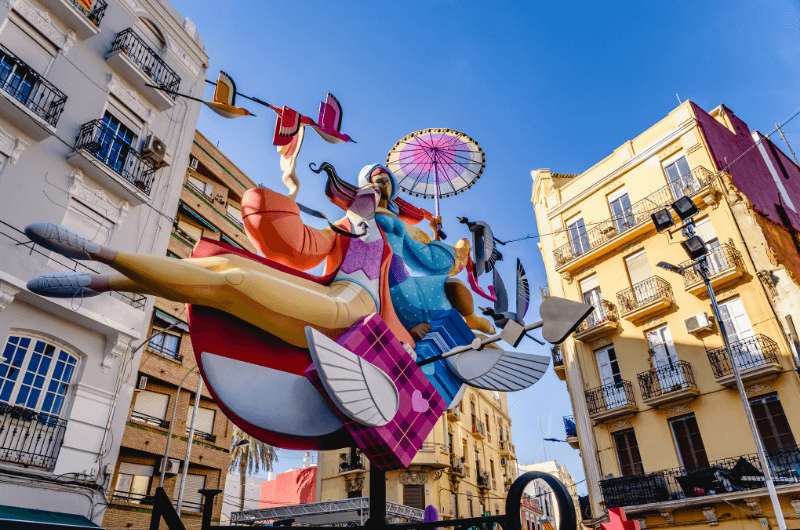
On March 15-17 each year, Valencia turns into a colorful and super noisy, but also traditional and meaningful, craze. Even UNESCO thinks it is worth your time.
Las Fallas comes from an old carpenter’s tradition. They would celebrate the arrival of spring by burning wood used to hold their lights during the winter. Eventually, cloth and other leftovers were added to the fires, then they were shaped into human-like figures. Fast forward and you now have hundreds of finely crafted statues, or fallas, set up around the wider center of Valencia. They’re made from cardboard and papier-mâché, making them wonderfully flammable.
Each community builds their own falla and hopes to win the title each year and have their creation saved from the fire that inevitably all fallas end up in on the last night of the festival. The statues are located all over Valencia, but the main ones are at Plaça de l’Ajuntament.
There is usually a theme for each year and the creations are known to be a satirical take on anything from politics to recent events or caricatures of popular public figures. They all look like cartoons and reminded me of Disneyland. When they burn the whole thing looks like something out of a horror movie. Imagine a cute princess or a silly animal going up in flames. These things aren’t small, either, so the fires are huge and firefighters are on standby.
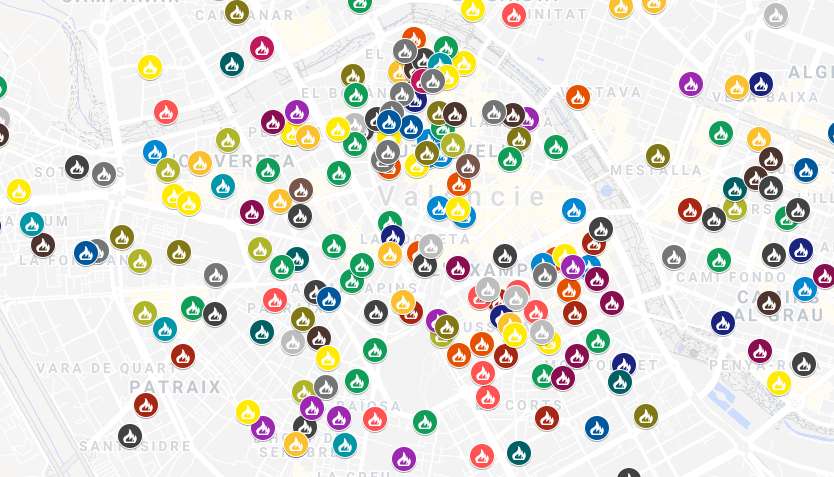
Fallas are literally all over town
Add the Valencians’ love of extremely loud firecrackers and fireworks displays, music, and traditional costumes, and you get Las Fallas. It is an event that swallows you up whole and spits you out needing a quiet getaway vacation! (Maybe head to the beaches of Mallorca, it’s not that far!)
Tip: During the festival, the city is full to the brinks and hotel and restaurant reservations are recommended far in advance. Note that the Old Town becomes pedestrianized during Las Fallas, meaning no taxis and no public transportation (except for the metro). So base yourself wisely so you don’t end up walking way too far each day. Hotel Zenit or One Shot Colón 46 are good options.
5. Other Neighborhoods in Valencia
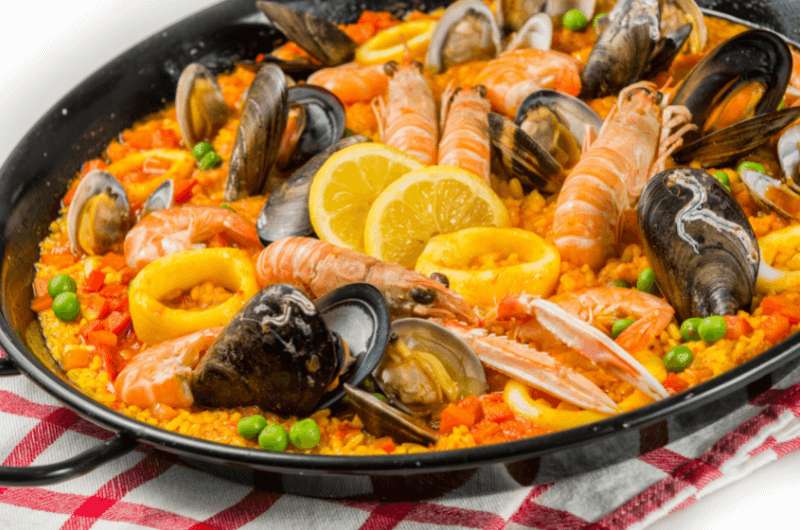
Some of the best paella restaurants in Valencia are away from the city center
There will inevitably be a time that you will want to run away from Las Fallas Festival and be normal for a couple of hours. And by normal I mean still surrounded by fallas, because there is no getting away from them, but perhaps in a bit of a quieter neighborhood.
Try the beachside district of El Cabanyal in the eastern part of Valencia. The sea front gives it that vacation vibe, and you can ogle the tiled facades of the mainly residential buildings here.
Give the restaurants on the beach front a miss though, they are overpriced and the quality isn’t great. If you wander back away from the water, you’ll be sure to find some local gems. They usually don’t even have English menus, but staff are friendly and will gladly prepare their specialties for you. Casa Montana is a good bet for tapas. Make reservations in advance! A little further north along the sea front is where the cute and tiled Casa Carmela is located. Get fantastic paella there!
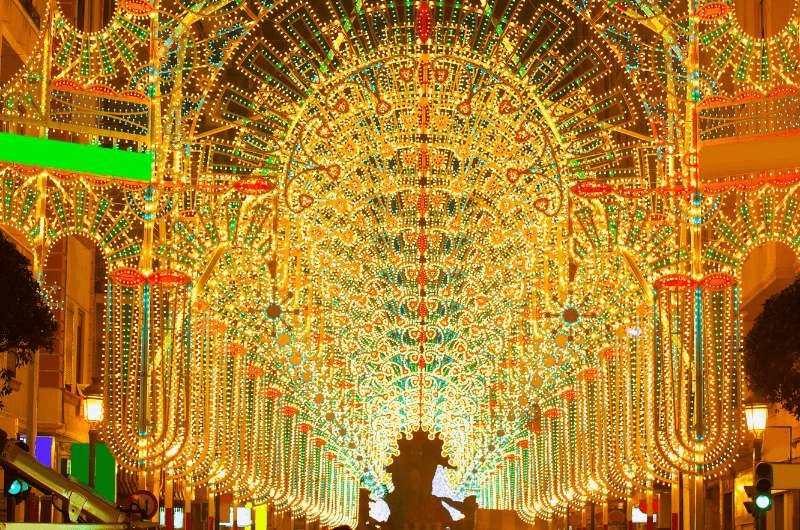
The lights in Ruzafa neighborhood are spectacular!
A step closer to Old Town is Ruzafa, a hip neighborhood that attracts all the expats. It’s full of cool bars and cafes. Plus, during Las Fallas, the streets are lit up each evening, it’s beautiful. It’s like Christmas but even more massive! Along Calle Cuba and Calle Sueca especially, the lights are spectacular. Every evening at 8 pm, there is a short light show and then the streets stay lit up. It’s magical!
If you are a beer lover like us, stop by Olhöps Craft Beer House. You won’t regret it.
If you opt to stay a little further from the action, this neighborhood is a great option. YOURS boutique hotel is a gorgeously minimalist hotel that we can recommend, and it is right on Calle Cuba.
6. The Cathedral and the Holy Grail
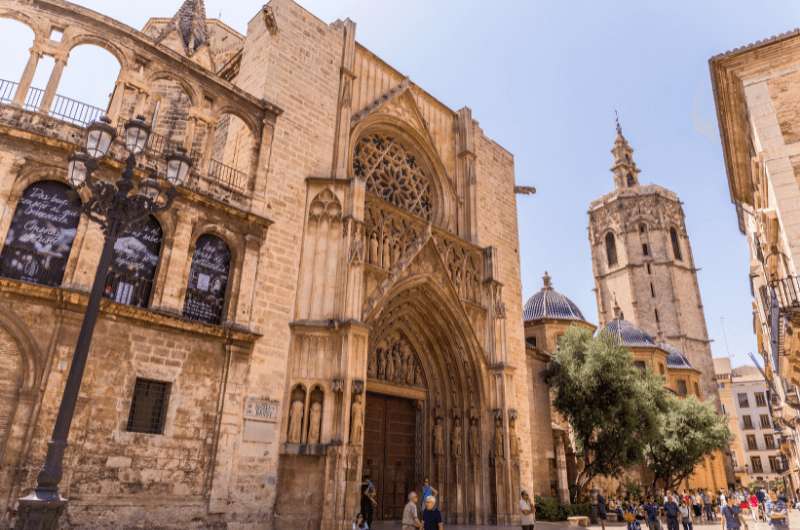
The Cathedral, one of the few things to see in Valencia
You’ll be spending some time by the cathedral to see the flower offering part of the festival, so you might as well make time to also visit Saint Mary's Cathedral. Not only is it pretty impressive from the outside, there is a special treasure inside, at least for some people: none other than the Holy Grail.
The Cathedral is built on the site of a mosque that was built on the site of a Roman temple. Within the cathedral is the Chapel of the Holy Grail and it holds what is believed to be real Holy Grail (aka the cup Jesus drank from at the Last Supper). The red glass part is supposedly the original, the gold pieces are not. How it got to Valencia, nobody knows. But there you go.
Tip: For another Jesus-related relic, head over to Turin in Italy, and make your own assessment on the likelihood that the Shroud is the real thing. I’m team skeptic for sure.
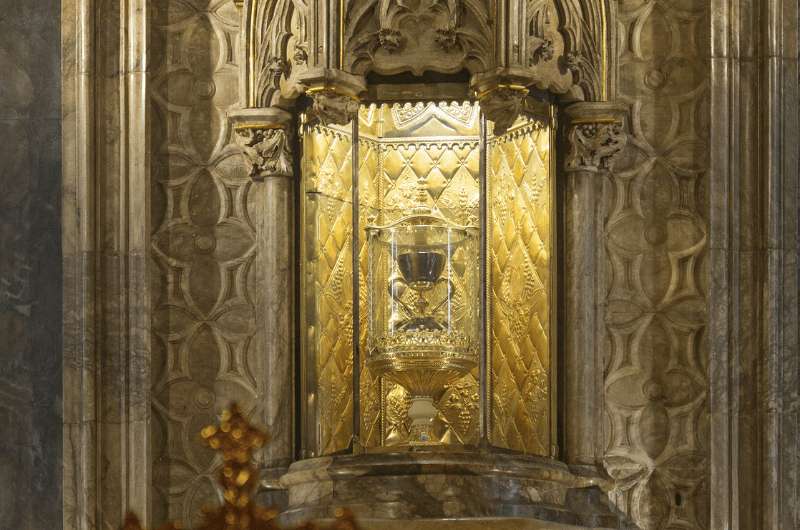
There it is: The Holy Grail
The cathedral also has a tower (named Miguelete) that used to be the minaret of the mosque (similar fate as the one in Seville) that is worth climbing up for the views of Valencia.
- Plaça de l'Almoina
- During December to March: Open Monday to Saturday 10:30 am–5:30 pm, closed on Sundays. During other months, closing times are generally one hour later and during Sundays, opening hours are 2 pm–6:30 pm. Last entry one hour before closing time.
- Tickets are €8 for the cathedral (with the Chapel of the Holy Grail included). An extra €2 for the tower.
7. El Carmen Old Town
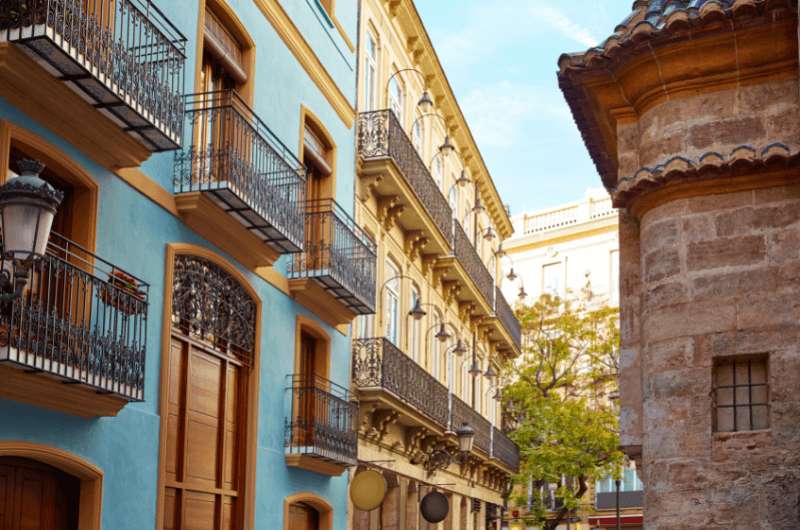
The colorful buildings in Valencia's Old Town
Valencia’s Old Town is called El Carmen. Wander through the streets as you would any Old Town.
If you want a specific place to see, you can aim for the Torres de Quart, the old Gothic defensive towers that used to be part of the city walls. They’re on the west side of Old Town.
Also make sure to take a look inside La Lonja, another great example of Gothic architecture, considered one of the best in Europe. You can tour it for free, it’s not very big but worth a little stroll. From the outside, it’s a little fortress sitting in the middle of town. Inside is pretty cool, with tall ceilings and fancy columns. The address is Carrer de la Llotja 2.
Stay away from the restaurants around La Lonja, they all seem to be tourist traps with mediocre food and high prices. Instead, try Toshi Restaurant for Japanese fusion. Both aren’t far from the cathedral.
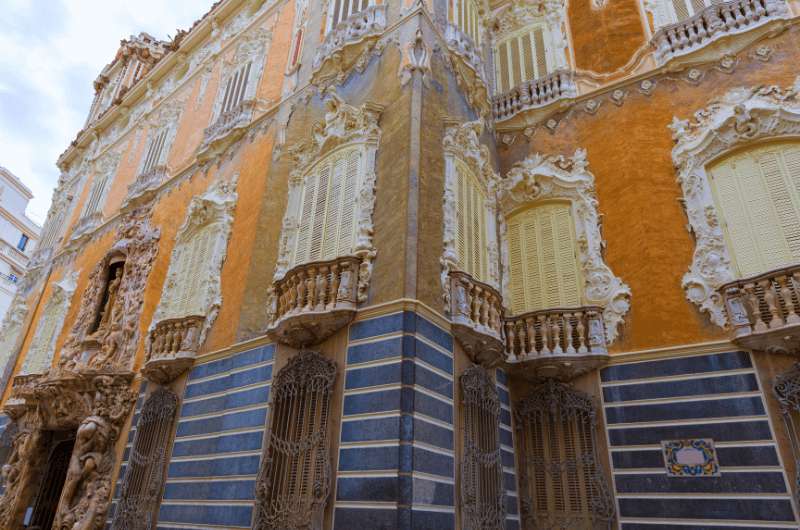
The rather strange exterior of the Ceramics Museum in Valencia
For the best paella, you have to go to Navarro. But make a reservation or you won’t get in, especially if you are in Valencia for the festival. The address is Carrer de l'Arquebisbe Mayoral 5, it’s in a street right by the city hall.
If palaces or ceramics are your thing, another building you need to walk by (or into) is the Palacio del Marques de Dos Aguas that houses the National Museum of Ceramics. The exterior of the building is strange to say the least! Look at the ornate entrance. Tickets cost €3, the address is Calle Cultura 6.
Also, if you love tiles, you’ll love Andalusia. Head on over to southern Spain for Moorish architecture galore with tiles for days! Try the palaces in Sevilla or Granada.
Our top tips for Valencia:
- Visit during the crazy festival: Las Fallas Festival
- Check out the treasure in the Cathedral: The Holy Grail
- Eat paella: Best restaurant reviews
8. Turia Garden
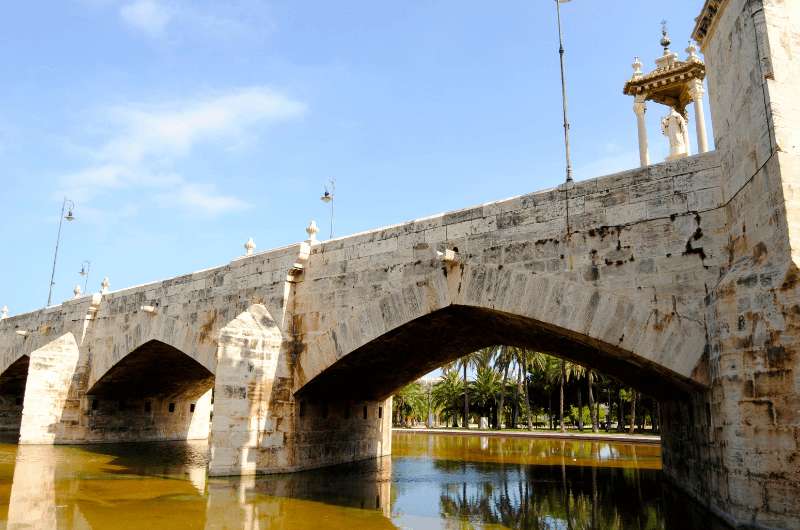
The Pont de la Mar in Turia Garden
If you want to get away from the crowds, like away into nature, Valencia has a unique park—Turia Garden—that is 9 km (5.5 miles) long and weaves through the city. It sits in place of the ex-river Turia, taking up the former riverbed. The river isn’t dead, it was just diverted to go around the city to prevent flooding.
Some parts of the park are manicured gardens with flowers, others are more just trees and paths. There are also playgrounds and various sports fields. It is also popular for running and cycling. So if Las Fallas is too much for you, you can literally try to run away from it all.
We thought the historical Pont de la Mar (bridge) was really nice and less crowded than the more popular Pont de les Flors right next to it. Though on the other hand, you get a nice view of the Pont de la Mar from the Bridge of Flowers. Walk across one and back on the other. Problem solved.
The Bridge of Flowers is exactly what it sounds like. A bridge with a bunch of flowers. Its fine, but not something you need to see more than once.
9. City of Arts and Sciences
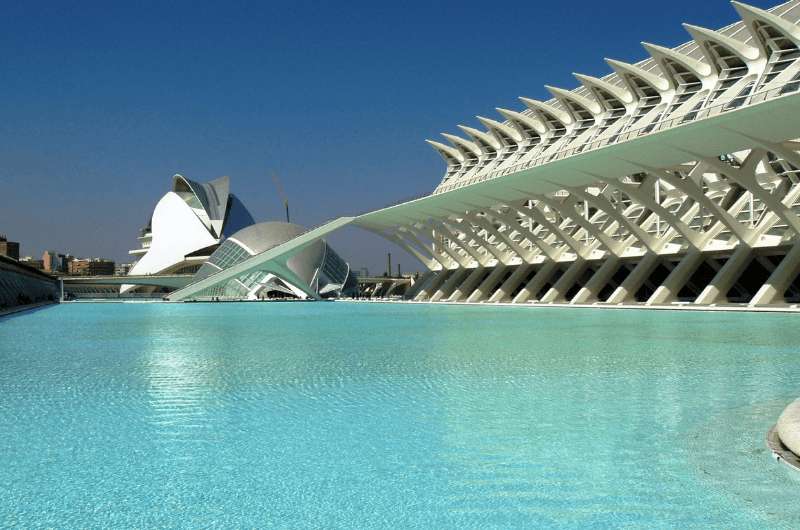
The Science Museum on the right, part of the City of Arts and Swimming Pools, errr, I mean Science
The huge area of the City of Arts and Sciences is at the very southern end of the Turia Garden, covering 2 km (1.2 miles) of it. To be totally honest I think it’s an eye sore, but it does stand out. I mean we are in Valencia, so we take what we can get! They might’ve been going for a Guggenheim moment, but I don’t think it has become the iconic place that Bilbao’s musem has.
We walked around the outside areas with massive pools, “admiring” the architecture of the buildings. I think it’s the turquoise blue pools combined with the very white structures that make it look like a public swimming pool park. We have one in Prague that l can’t help but compare to it.
Tip: There is a fantastic paella restaurant just south of the City of Arts and Science, called Alquería del Pou.
The individual pieces of the City were built starting in 1990 (Hemisfèric, a large 3D movie theater complex, including one with a concave screen), with Ágora being added last in 2009. Ágora is darker than the other buildings, which are white, and reminded me of Darth Vader’s helmet. It’s an event venue that isn’t open to the public.
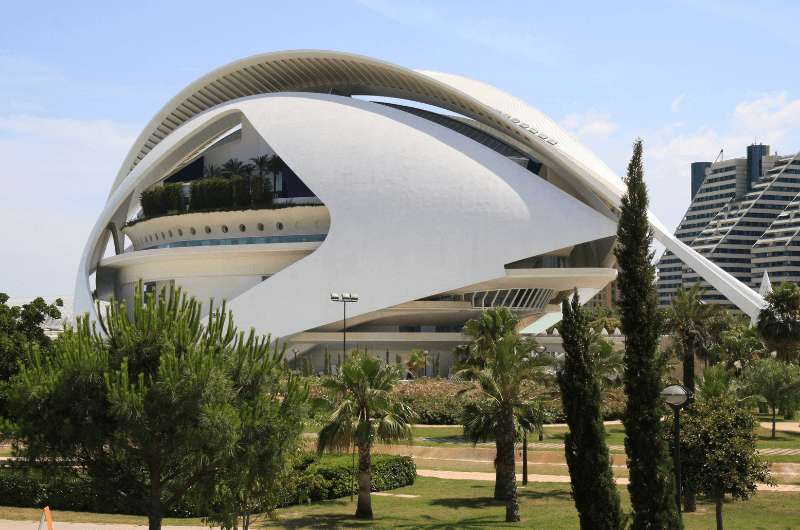
This is the opera house. Or is it a Storm Trooper’s helmet?
The other buildings are:
Europe’s largest aquarium, Oceanogràfic, is in several of the blobs. They still do dolphin shows, just fyi in case you don’t want to support these kinds of activities.
Palau de les Arts Reina Sofía is an opera house, also in its own blob.
The Science Museum is supposedly really interactive and fun. Not a blob.
You can walk or have a drink in Umbracle, an expansive garden under a white structure.
- Ticket prices depend on which buildings you choose to visit. Just the Oceanogràfic is €31.90, just the Science Museum €8, a combination of the two is €33.40. You can tour the opera house for €11.
- Opening times vary for each building and according to season, so check online before you go.
10. Fallas Museums
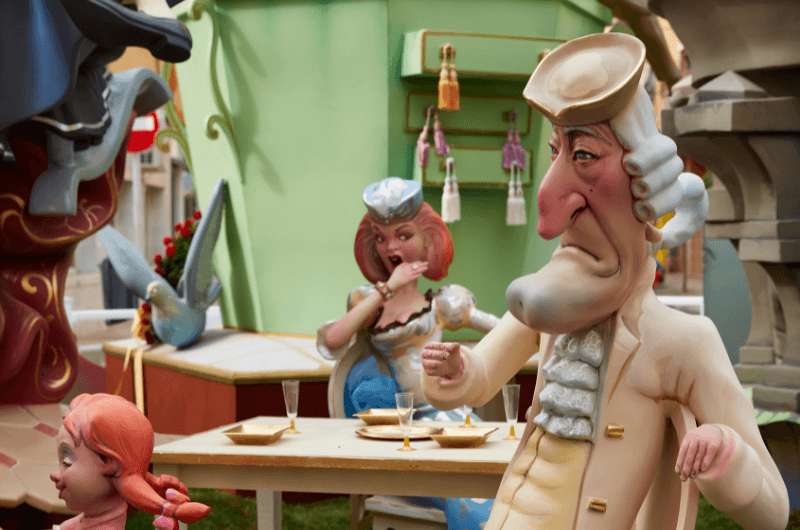
Pretty sure he was supposed to be holding a glass
There are two museums dedicated to Las Fallas that are informative and fun. It was fascinating to learn about the tradition, how the fallas evolved and how they are built. A must-visit if you are at all curious about the festival.
One museum is dedicated to the individual ninots, the characters that make up a falla. The Fallas Museum is located just north of the City of Arts and Sciences, and it showcases the ninots that are saved from the fire each year (by popular vote). I especially liked the exhibit of the festival posters. It’s cool to see how the ninots and posters changed throughout the years, and that they actually burn these things after so much much has gone into them!
- The Fallas Museum, Plaza Monteolivete 4.
- Closed Mondays. Tuesday to Saturday 10 am–7 pm, Sundays 10 am–2 pm. Last entry one hour before closing time.
- Tickets are just €2, free on Sundays.
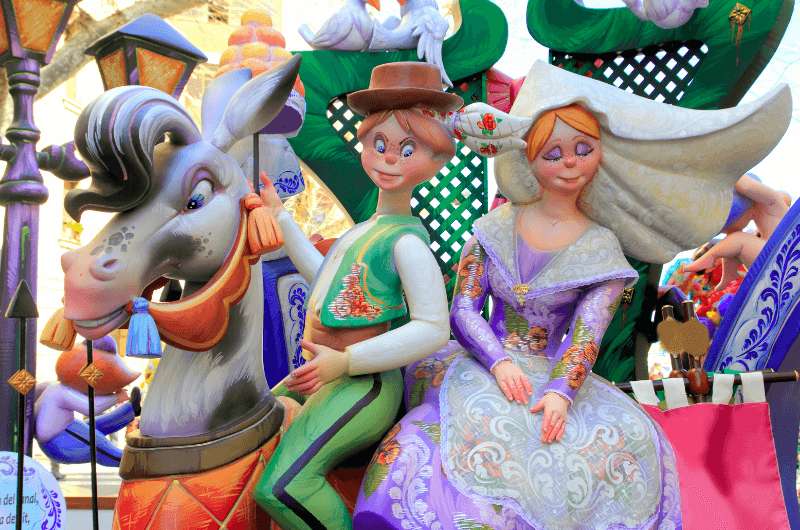
ninonts
The Museum of the Gremio Artesano de Artistas Falleros is the better of the two if you want to really get to know the creation process. This one has not only individual ninots, but also full fallas on display. They are also ones that were saved from the fire each year, this time by the artist’s guild. There are also sketches, models and photographs that give you a better idea of how fallas are made.
The best part is the location of the museum, which is something like “Fallas City”. It’s within the halls where the craftsmen work to put their fallas together, and if you visit in February or the first half of March, you can actually see them work on their masterpieces. It is away from the city center though, but definitely worth the detour.
- Museum of the Gremio Artesano de Artistas Falleros, Av. de Sant Josep Artesà 17.
- Closed Sundays. Monday to Friday 10 am–2 pm and 4 pm–7 pm. Saturday 10 am–2 pm. Closed all of August.
- Tickets are €4.
This post may contain affiliate links. We earn a small commission if you make bookings through my links, at no additional cost to you. This helps us keep this blog free, thank you!


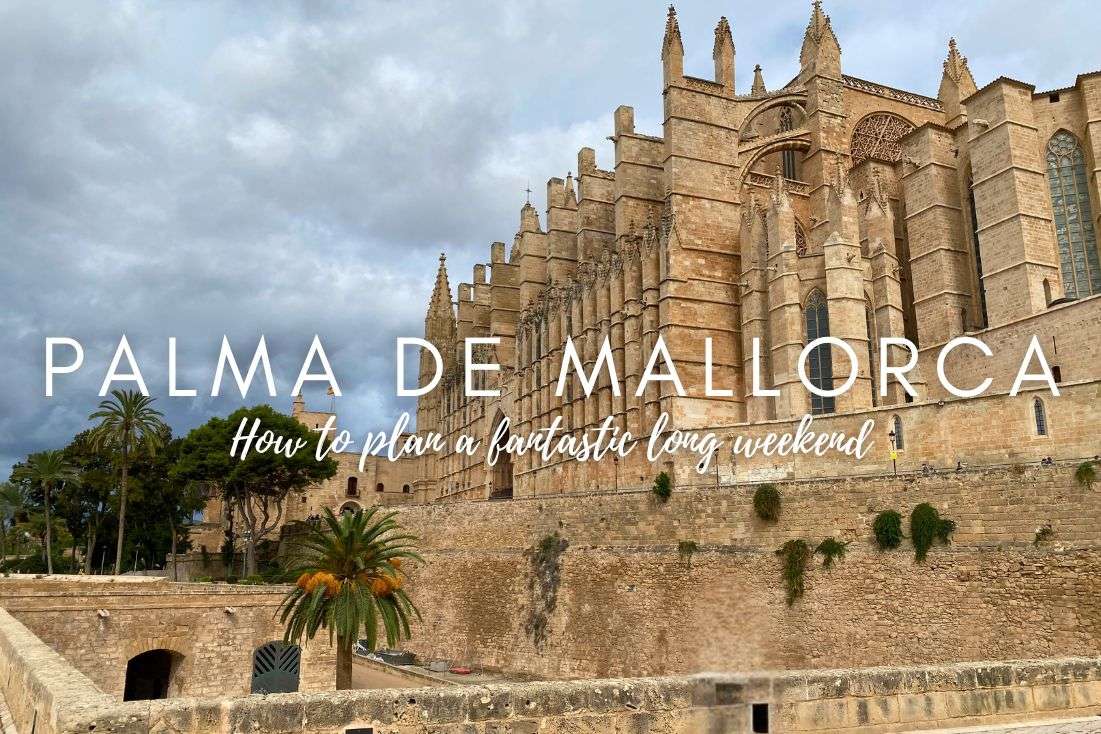
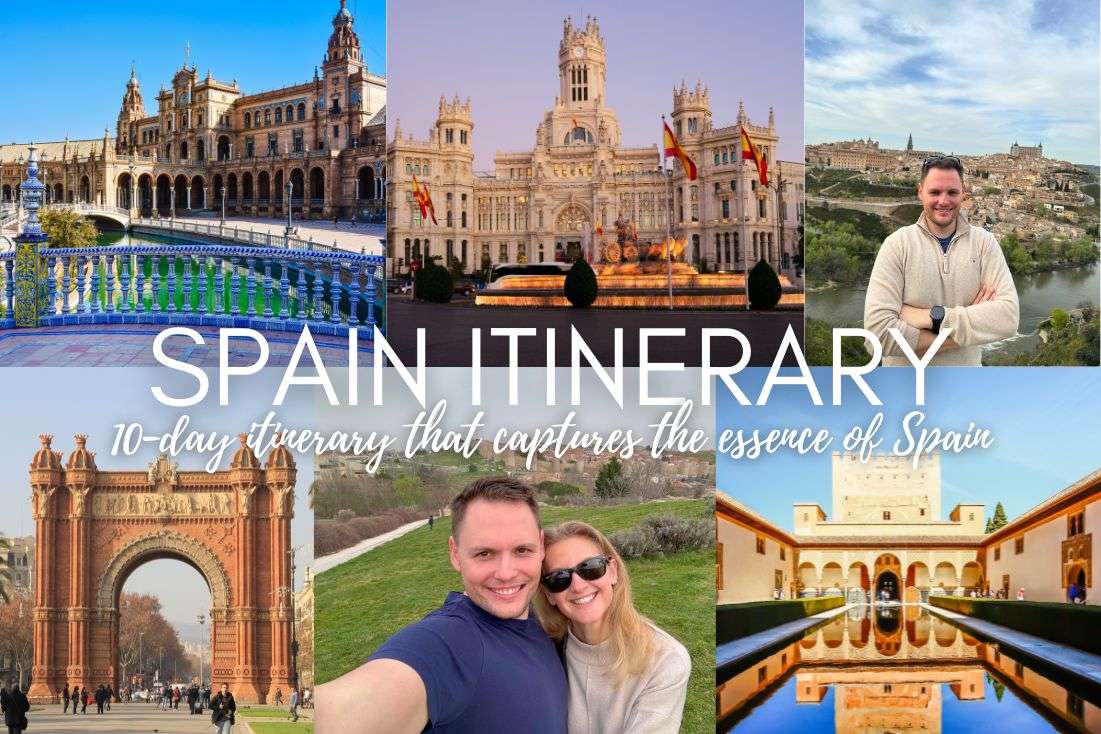
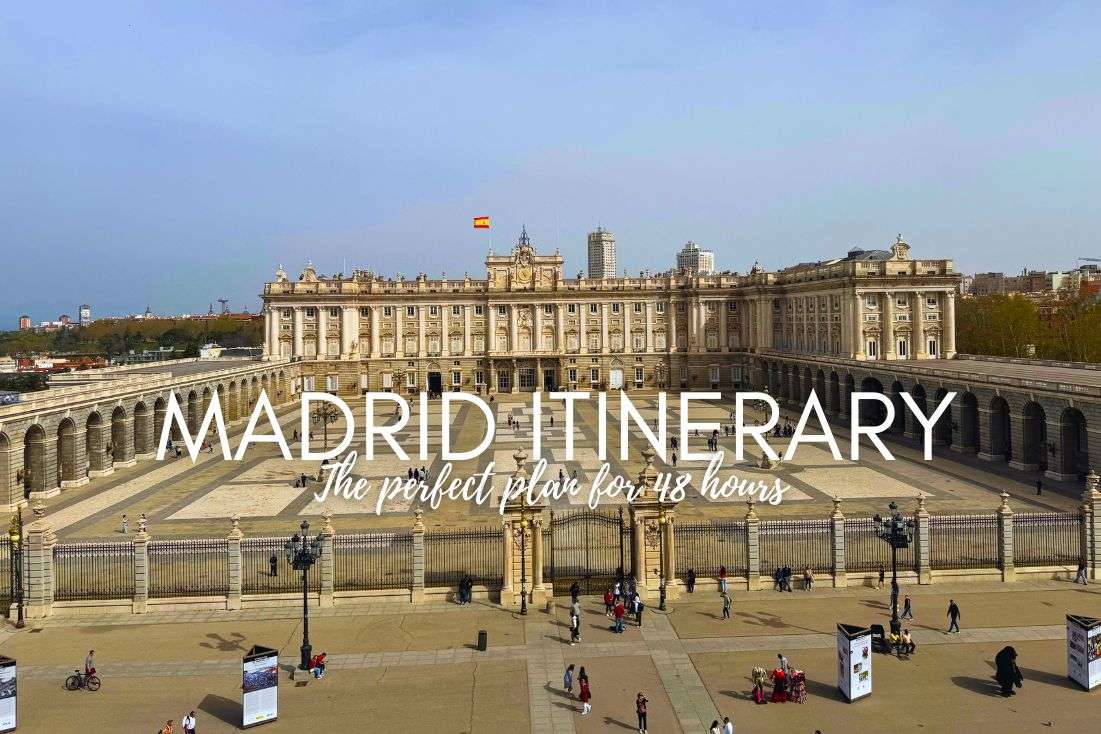





Comments | Thoughts? Give us a shout!